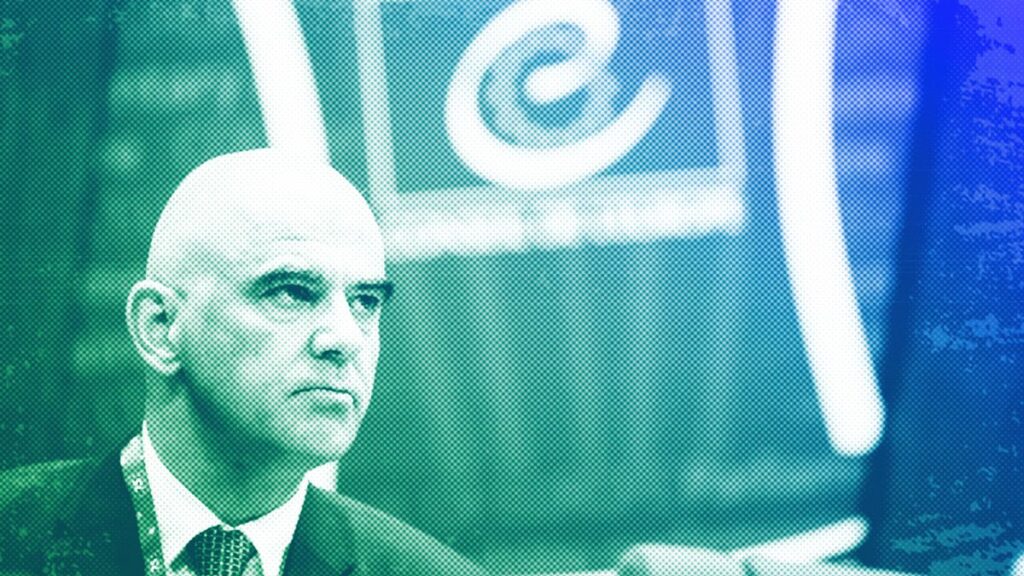The opinions expressed in this article are those of the author and do not represent in any way the editorial position of Euronews.
Romania has a new president. And for a moment, Europe held its breath.
This was never just about one election. What hung in the balance was military aid to Ukraine, the territorial integrity of neighbouring countries, and a potential strategic and ideological pivot towards Washington on security and defence.
Nicușor Dan’s victory may offer a temporary reprieve. But it does not erase the deep fractures across our continent, nor the powerful currents reshaping its future.
Just this past Friday, I joined more than 40 European heads of state and government at the European Political Community Summit in Tirana. Security, stability, and democratic resilience were at the top of the agenda.
Europe’s security architecture stands exposed — and with it, the vulnerabilities we can no longer ignore.
Defending Europe’s values
Europe’s security is inseparable from its values.
The Council of Europe, with its 46 member states, was founded on the conviction that true and lasting security depends on democracy, human rights, and the rule of law. Today, this means tackling issues like terrorism, migration and cybercrime.
The traditional divide between “hard” and “soft” security is outdated.
Europe must now define a strategy for democratic security — one that puts values at the heart of our defence. Because the very values that have made peace possible in Europe for over eighty years are under attack.
The European Union is right to commit €800 billion for military defence. Democratic security demands the same clarity, urgency, and resolve across the entire continent.
Not all threats come from outside Europe’s borders.
One of the most insidious is the fragmentation of the political landscape. Traditional parties are losing ground. Political reference points are shifting — often to the benefit of extreme positions. Disruptive forces are rushing in to fill the vacuum.
Today’s politics is, above all, anti. Anti-European. Anti-immigration. Anti-elite. Anti-woke. Anti-system.
Democratic debate is increasingly drowned out by so-called “culture wars”.
There are always easy targets. In the UK, Conservative Party leader Kemi Badenoch has highlighted the weaponisation of the European Convention on Human Rights, accusing it of weakening national identity and border security.
In the US, Vice-President JD Vance, doubling down on his Munich speech, has framed limits on free speech as a direct threat to Western civilisation.
The risk is using the tools of democracy itself — its laws, institutions, and freedoms — to restrict rights, suppress dissent, and create the illusion that security must come first.
Trading democracy for security
Across Europe, foreign influence laws are being introduced. Their intent may be legitimate. But as I have made clear, these measures should not be used to stifle criticism or shrink civic space.
These laws must be scrutinised without double standards, especially by the judiciary. What is deemed unacceptable in Georgia or Hungary must be judged by the same measure in Germany or Romania.
Because double standards, whether real or perceived, erode public trust and damage Europe’s credibility, not least in the eyes of the Global South.
It is not an isolated concern. In Bosnia and Herzegovina, a legal and constitutional crisis threatens to destabilise the Western Balkans. In Germany, a far-right AfD candidate recently claimed Adolf Hitler was a communist, a jarring reminder that lies continue to poison democratic life.
This is where the real danger lies: trading democratic security for the security of democracy, without even realising it.
In this new paradigm, freedoms are curtailed in the name of protecting them, institutions are hollowed out by cynicism or design, and rules are bent under the pretext of sovereignty or urgency.
A New Democratic Pact for Europe
The window for action is closing fast. That is why we need a New Democratic Pact for Europe, backed by all 46 member states and built on three priorities: education, protection, innovation.
To educate is to teach the difference between truth and falsehood.
Seventy-six per cent of young Europeans say they have encountered disinformation in the past week. Forty-two per cent rely on social media as their primary news source.
Europe cannot surrender the public sphere to algorithms. We need to pave the way for a Council of Europe Convention on Disinformation and Foreign Influence — to draw clear boundaries between freedom of expression and imperative for truth, between legitimate critique and destabilisation.
To protect is to reinforce democracy wherever it is in retreat.
From attacks on journalists to weakened elections and politicised justice systems, the warning signs are all around us.
A Democratic Resilience Fund would provide rapid support wherever democracy teeters, allowing us to prevent, rather than repair.
To innovate is to adapt our institutions to fast-moving, cross-border, hybrid threats.
No single organisation can face this alone. The Council of Europe and the European Political Community share the same continent and have the same ambition.
One brings legal standards, institutional experience, and technical expertise; the other, political momentum. Together, they can make democratic security a European priority.
Building Europe’s democratic security will not be easy. But Europe has turned adversity into opportunity before.
In April 1945, Buchenwald survivors scrawled two simple words on makeshift signs: “Never again.” They became the post-war rallying cry for an entire continent. From that moral pact emerged a new Europe — and with it, the Council of Europe.
Eighty years later, if Europe is to avoid reliving “Never again”, it must unite around a new pact and make democratic security its first line of defence.
Alain Berset is Secretary General of the Council of Europe and former Swiss president.
Read the full article here

